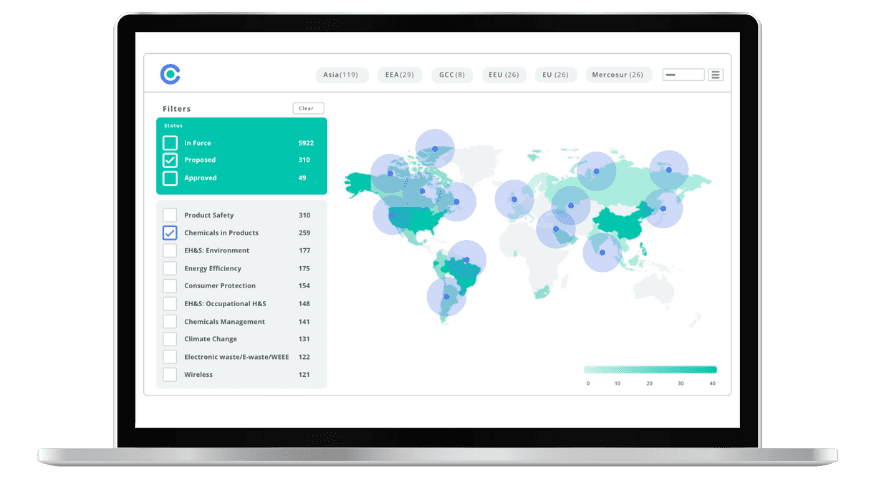
Numerous Climate Executive Orders Issued by Former President Biden are Revoked

This blog was originally posted on 23rd January, 2025. Further regulatory developments may have occurred after publication. To keep up-to-date with the latest compliance news, sign up to our newsletter.
AUTHORED BY KELLY BUGIERA, TEAM LEAD & SENIOR REGULATORY COMPLIANCE SPECIALIST, COMPLIANCE & RISKS
On January 20, 2025, newly inaugurated President Trump revoked a number of Executive Orders previously issued by former President Biden. As part of these revocations, President Trump focused on combatting what he describes as “climate extremism“, believing it has “exploded inflation and overburdened businesses with regulation“. The following is a listing of some of the previously issued Executive Orders (EO) related to climate issues that have now been revoked.
EO13990: Protecting Public Health and the Environment and Restoring Science To Tackle the Climate Crisis
This EO was issued on January 20, 2021 and directed all executive departments and agencies to immediately review and, as appropriate and consistent with applicable law, take actions in order to address the promulgation of Federal regulations and other actions occurring during the previous four years that are in conflict with important national objectives of listening to science and protecting the environment, and to immediately commence work to confront the climate crisis. This included efforts to reduce greenhouse gas emissions and advance environmental justice issues.
EO 13990 was revoked on January 20, 2025.
EO 14008: Tackling the Climate Crisis at Home and Abroad
This EO was issued on January 27, 2021, recognizing that the United States and the world face a profound climate crisis and that the US had a narrow moment to pursue action, both home and abroad, to avoid the most catastrophic impacts of that crisis and to seize the opportunity to tackle climate change. US international engagement to address climate change, which had become a climate crisis, was determined to be more necessary and urgent than ever since the scientific community had made it clear that the scale and speed of necessary action was greater than previously believed. Response to the climate crisis required both significant short-term global reductions in greenhouse gas emissions and net-zero global emissions by mid-century or before.
This EO built on and reaffirmed actions to place the climate crisis at the forefront of US’s foreign policy and national security planning, including submitting the United States instrument of acceptance to rejoin the Paris Agreement. In implementing—and building upon—the Paris Agreement’s three overarching objectives (a safe global temperature, increased climate resilience, and financial flows aligned with a pathway toward low greenhouse gas emissions and climate-resilient development), the US would work to promote a significant increase in global climate ambition to meet the climate challenge.
EO 14008 was revoked on January 20, 2025.
EO 14027 – Establishment of the Climate Change Support Office
This EO was issued on May 7, 2021 and established, within the Department of State, a temporary organization to be known as the Climate Change Support Office (CCSO). The purpose of the CCSO was to support bilateral and multilateral engagement to advance the US initiative to address the global climate crisis, led by the Department of State and in coordination with other executive departments and agencies. The CCSO would support the Department of State, including the Special Presidential Envoy for Climate, in the efforts of the US to elevate and underscore a commitment to addressing the global climate crisis.
EO 14027 was revoked on January 20, 2025.
EO 14030 – Climate-Related Financial Risk
This EO was issued on May 20, 2021 and established that the policy of the US was to advance consistent, clear, intelligible, comparable, and accurate disclosures of climate-related financial risks. This was to include both physical and transition risks; acts to mitigate those risks and drivers, while accounting for and addressing disparate impacts on disadvantaged communities and communities of color (consistent with Executive Order 13985 of January 20, 2021 (Advancing Racial Equity and Support for Underserved Communities Through the Federal Government)); spurring on the creation of well-paying jobs; and achieving the target of a net-zero emissions economy by no later than 2050.
EO 14030 was revoked on January 20, 2025.
In Summary
We will be monitoring for additional policy impacts of the new administration, as well as state and federal legislative and regulatory developments, in order to provide necessary updates.
Stay Ahead Of Regulatory Changes During the Changing Political Landscape
Want to stay ahead of regulatory developments including changing US executive orders?
Accelerate your ability to achieve, maintain & expand market access for all products in global markets with C2P – Your key to unlocking market access, trusted by more than 300 of the world’s leading brands.
C2P is an enterprise SaaS platform providing everything you need in one place to achieve your business objectives by proving compliance in over 195 countries.
C2P is purpose-built to be tailored to your specific needs with comprehensive capabilities that enable enterprise-wide management of regulations, standards, requirements and evidence.
Add-on packages help accelerate market access through use-case-specific solutions, global regulatory content, a global team of subject matter experts and professional services.
- Accelerate time-to-market for products
- Reduce non-compliance risks that impact your ability to meet business goals and cause reputational damage
- Enable business continuity by digitizing your compliance process and building corporate memory
- Improve efficiency and enable your team to focus on business critical initiatives rather than manual tasks
- Save time with access to Compliance & Risks’ extensive Knowledge Partner network

Emerging Requirements & Standards for Measuring Product Circularity and Supply Chain Data Collection
Get an overview of upcoming circular economy requirements, which are pushing manufacturers and their networks to measure and share product circularity information & data.


